History of the Faculty of Economics at Cambridge
The Faculty of Economics at the University of Cambridge is one of the longest standing as well as being one of the leading economics faculties1 in Europe. The Faculty has a global reputation for outstanding academic achievement and world-class original research. The Cambridge Faculty of Economics Tripos (undergraduate course) has been consistently rated No. 1 in The Complete University Guide. Our academic staff include some of the world's most distinguished economists, including many Nobel Prize winners. Cambridge economists undertake innovative research that extends the frontiers of modern economic analysis, and our teaching programmes are internationally recognised for the excellent training and scholarship that is provided.
Many distinguished economists, including Nobel Prize winners, have been members of The Faculty of Economics at the University of Cambridge. Robert Malthus, active two hundred years ago at Jesus College, was described by Keynes as ‘the first of the Cambridge economists’ He was famous for his work An Essay on the Principle of Population, 1798.
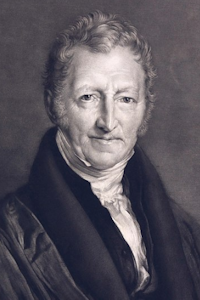
Thomas Robert Malthus (1766-1834)
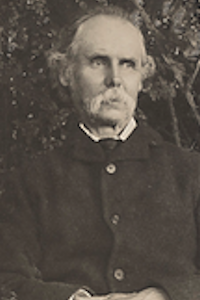
Alfred Marshall (1842-1924)
It was in 1903 that the Professor of Political Economy, Alfred Marshall established what was to become the Economics Tripos as an undergraduate degree course and thereby established the Faculty of Economics and Politics. By then Marshall had already published his great Principles of Economics (1890) in which he set out for the first time the geometric analysis of supply and demand, incorporating the systematic treatment of different time periods. He went on to develop the quantity theory of money in an attempt to understand the macro-economy.
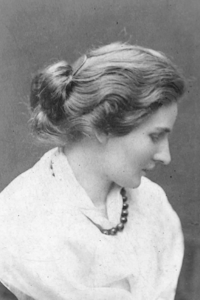
Mary Paley Marshall (1850-1944)
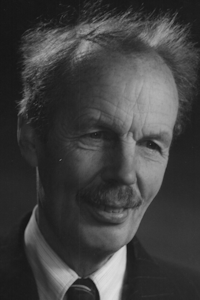
Arthur Cecil Pigou (1877-1959)
Mary Paley was one of the first women to be admitted to study at Newnham College Cambridge in 1871 and one of the first to take and pass the tripos in Moral Sciences, but as a woman was unable to graduate. She was invited to become the first woman lecturer in Economics. She published the Economics of Industry jointly with her husband, Alfred Marshall, in 1879. The Marshall Library was founded when Alfred died in 1924. He left the library many of his books, along with a legacy. Mary was the first volunteer librarian and when she died she also left a legacy to maintain the Marshall Library for scholars in Economics
In 1908 Marshall’s professorship was taken by Arthur Pigou who developed the foundations of modern public economics in his The Economics of Welfare, published in 1920.
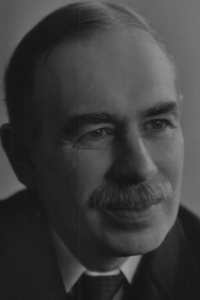
John Maynard Keynes (1883-1946)
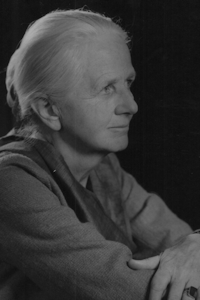
Joan Robinson (1903-1983)
Between the Wars, the Faculty was extraordinarily innovative, witnessing the birth of modern macro-economics and a revolution in micro-economics. The dominant figure was Marshall's pupil John Maynard Keynes who, throughout his life, moved fruitfully between academic thought and public policy. His analysis of the role of monetary and fiscal policy in determining the level of employment has enhanced public policy making ever since, as have the international institutions he caused to be established after the Second World War.
Joan Robinson was arguably the only woman born before 1930 who can be considered a great economist. Her first major book was The Economics of Imperfect Competition (1933), in which she laid out a model of competition between firms, each of which had some monopoly power. She taught at Cambridge from 1928 - 1971.
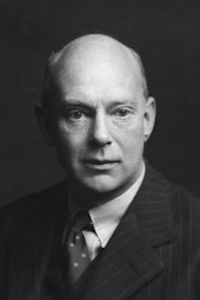
Denis Robertson (1890-1963)

Richard Kahn (1905-1989)
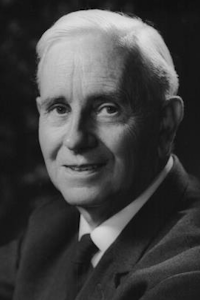
Austin Robinson (1897-1993)
Working with Keynes and Robinson on these problems were, among others, Denis Robertson, Richard Kahn, Austin Robinson, Maurice Dobb and Piero Sraffa.
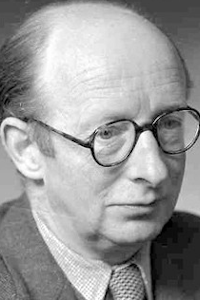
Maurice Dobb (1900-1976)
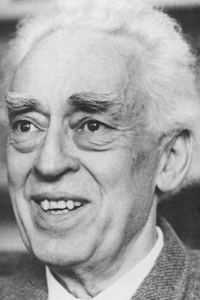
Piero Sraffa (1898-1983)
The economic demands of the Second World War provided the stimulus for Richard Stone and James Meade to develop the basis of modern national accounting.
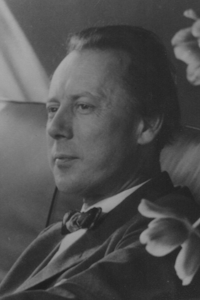
Richard Stone (1913-1991)
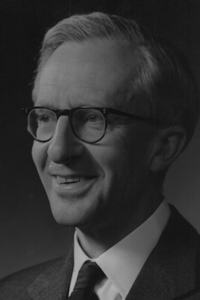
James Meade (1907-1995)
Both were subsequently to be awarded Nobel Prizes for this and other work. With Keynes, Stone established the Department of Applied Economics (DAE) in 1945, as a research wing for the Faculty, with financial support from the University. From its inception, the DAE proved to be a remarkable nursery for economists who have achieved subsequent distinction in academic and public life.
The present Faculty continues its long established interest in public economics, macro-economics, business strategy, and the problems of economic measurement.

Nicholas Kaldor (1908-1986)
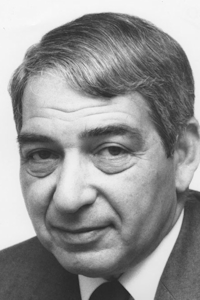
Frank Hahn (1925-2013)
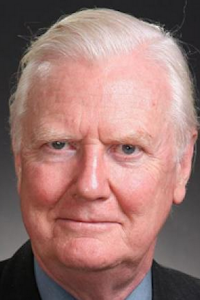
James Mirrlees (1936-2018)
Many distinguished scholars have worked in the Faculty and contributed to its intellectual life in recent decades, among them Nicholas Kaldor and Frank Hahn.
Following Keynes’ General Theory several econmists attempted to build a business cycle model. It was Kaldor that invented a fully coherent and realistic account of the business cycle in 1940, using non-linear dynamics to construct his theory.
Kaldor was elected to a Fellowship at King’s College, Cambridge and offered a lectureship in the Faculty of Economics in 1949. He became a Professor in 1966.
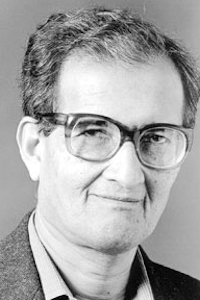
Amartya Sen
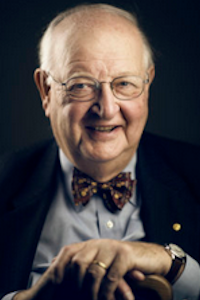
Sir Angus Deaton FBA

Oliver Hart
Sir James Mirrlees was awarded the Nobel Prize in 1996 for his work on optimal taxation and the theory of incentives, and Amartya Sen was awarded the Nobel Prize in 1998 for his work on welfare economics and income distribution.
Sir Angus Deaton studied for his BA, MA and PhD at Cambridge, under the supervision of Sir Richard Stone. He worked in the Faculty as a research officer in the Department of Applied Economics. He was awarded the Nobel Prize in 2015 for his analysis of consumption, poverty and welfare.
Distinguished economist Professor Oliver Hart was jointly awarded the Nobel Prize in 2016 for his work on contract theory and the theory of incomplete contracts: their role in rationalizing the governance of companies and the design of law and institutions. He studied Mathematics at Kings College, Cambridge and from 1975 to 1981 was a Lecturer in the Faculty of Economics.
Another tradition upheld by current Faculty members is that of involvement in public policy. The Faculty of Economics remains committed to keeping economics useful.
